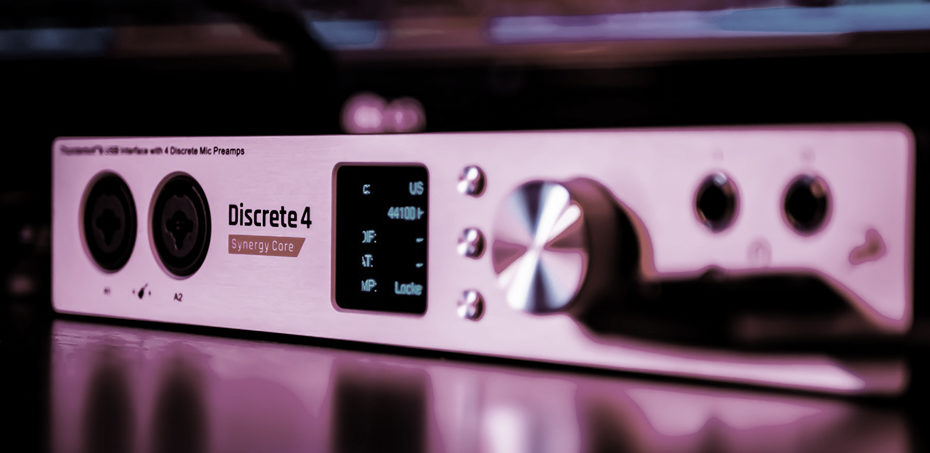What is an Audio Interface?
One of the most important aspects of recording and production is making sure the sound is being routed to the right place. An audio interface allows microphone signals and external instruments to be heard on computer software or speakers. Usually, the connection from the computer will be a standard USB whilst the inputs from microphones and other external instruments could be XLR, 6.35mm TRS jack or even 5 pin MIDI!
Even the smaller members of the audio interface family can make a huge difference to your studio set up. Many will provide phantom power for microphone signals and gain-controlled inputs for external instruments. Another benefit is the ability to control the master volume of the set up via a single knob.

What is a MIDI Interface?
Similar to the audio interface, the MIDI counterpart focuses solely on transporting MIDI data back and forth, much like traffic on a two-way street. Many hardware synthesisers have in-built MIDI interfaces, usually consisting of an input, output and sometimes a ‘thru’ connection. The thru (short for through) feature allows MIDI data to travel unaltered to the next destination without additional latency.
Other MIDI interfaces could look much like an audio interface – a box shape device with various inputs and outputs, routing to and from hardware devices. These standalone units can be very useful for routing one input to multiple outputs; for instance – one keyboard controlling three synthesisers simultaneously.
Which Device is Right For Me?
Firstly, take stock of your equipment! See what devices you have, which devices you are intending to add to your collection and study the cables required to make everything work in harmony (most MIDI or audio interfaces will not come equipped with cables other than power).
Secondly, be sure to read plenty of reviews. This isn’t just to avoid poor quality manufacturing but also to see if genuine users have spotted downfalls in the product. Furthermore, these users may have stumbled across great features which may answer some of your questions.
Research will play a huge part in the quality of your hardware (or any!) purchases. Don’t be afraid to ask ‘stupid’ questions in forums or to the manufacturers directly. You have the right to know the facts before spending money.
